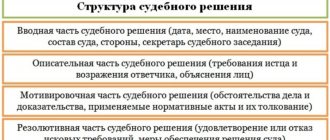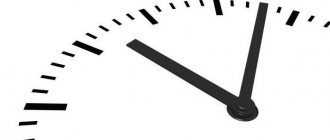Article 30 of the Code of Criminal Procedure of the Russian Federation. Composition of the court (current version)
1. Consideration of criminal cases is carried out by the court collectively or by a single judge. The composition of the court for the consideration of each criminal case is formed taking into account the workload and specialization of judges through the use of an automated information system. If it is impossible to use an automated information system in court, it is allowed to form the composition of the court in a different manner, excluding influence on its formation by persons interested in the outcome of the trial.
2. The court of first instance considers criminal cases in the following composition:
1) judge of a federal court of general jurisdiction - criminal cases of all crimes, with the exception of criminal cases specified in paragraphs 2 - 4 of this part;
2) a judge of the supreme court of the republic, a regional or regional court, a court of a federal city, a court of an autonomous region, a court of an autonomous district, a district (naval) military court and a panel of eight jurors - at the request of the accused, criminal cases for the crimes specified in paragraph 1 part three of article 31 of this Code, with the exception of criminal cases of crimes provided for in articles 131 part five, 132 part five, 134 part six, 212 part one, 275, 276, 278, 279, 280.2, 281 of the Criminal Code of the Russian Federation;
2.1) a judge of a district court, a garrison military court and a panel of six jurors - at the request of the accused, criminal cases of crimes provided for in Articles 105 part two, 228.1 part five, 229.1 part four, 277, 295, 317 and 357 of the Criminal Code of the Russian Federation, for which, as the most severe form of punishment, life imprisonment or the death penalty cannot be imposed in accordance with the provisions of part four of Article 66 and part four of Article 78 of the Criminal Code of the Russian Federation, criminal cases of crimes provided for in Articles 105 part one and 111 part four Criminal Code of the Russian Federation, with the exception of criminal cases of crimes committed by persons under the age of eighteen;
3) a panel of three judges of a federal court of general jurisdiction - criminal cases of crimes provided for in articles 205, 205.1, 205.2, 205.3, 205.4, 205.5, 206, 211 part four, 212 part one, 275, 276, 278, 279, 280.2, 281 parts two and three of the Criminal Code of the Russian Federation, and other criminal cases within the jurisdiction of the 1st Eastern District Military Court, the 2nd Western District Military Court, the Central District Military Court and the Southern District Military Court in accordance with paragraphs 2 - 4 of part six .1 Article 31 of this Code, and if there is a request from the accused, filed before the appointment of a court hearing in accordance with Article 231 of this Code - criminal cases of crimes provided for in Articles 105 part two, 126 part three, 131 parts three - five, 132 parts third - fifth, 134 parts fourth - sixth, 208 parts first, 209, 210 parts first, first.1, third and fourth, 210.1, 211 parts first - third, 227, 228.1 parts fifth, 229.1 parts fourth, 277, 281 parts first, 295, 317, 353 - 358, 359 parts one and two, 360 of the Criminal Code of the Russian Federation;
4) magistrate - criminal cases within his jurisdiction in accordance with part one of Article 31 of this Code.
3. Consideration of criminal cases on appeal is carried out:
1) in a district court - by a judge of the district court alone;
2) in higher courts - by a court composed of three judges of a federal court of general jurisdiction, with the exception of criminal cases of crimes of minor and medium gravity, as well as criminal cases with appeals, submissions against interim decisions of a district court, garrison military court, which are considered by a judge of the supreme court court of a republic, regional or regional court, court of a federal city, court of an autonomous region, court of an autonomous district, district (naval) military court individually.
4. Consideration of criminal cases in cassation procedure is carried out by the judicial collegium for criminal cases of the cassation court of general jurisdiction, the military court of cassation, the Judicial collegium for criminal cases of the Supreme Court of the Russian Federation and the Judicial collegium for military personnel of the Supreme Court of the Russian Federation, consisting of three judges, and in the order supervision - by a majority of members of the Presidium of the Supreme Court of the Russian Federation.
5. When considering a criminal case by a court consisting of three judges of a federal court of general jurisdiction, one of them presides over the court session.
6. Criminal cases within the jurisdiction of a magistrate, committed by persons specified in part five of Article 31 of this Code, are considered by judges of garrison military courts individually in the manner established by Chapter 41 of this Code. In these cases, the verdict and decision can be appealed.
Types and features of courts of first instance
There are a number of judicial institutions that on the territory of the Russian Federation belong to the courts of first instance:
- World judge.
He independently makes decisions on the cases being examined and the questions raised, and at the end of the meeting he pronounces a verdict. However, the power of a magistrate goes far beyond the boundaries of his duties: he has the right to make decisions that are carried out by other judicial authorities.
The powers of the magistrate judge include:- exercising control over the legality of adopted resolutions, as well as regulating the actions of officials and local authorities;
the judge carefully ensures that the decision or sentence taken comes into force as soon as possible;
- taking part in the creation of the structure of the judicial organization.
- District Court
is also a representative of the first judicial instance. In relation to the magistrate, it acts as an appellate body. The district court is considered the most accessible to the population, since it exists in every locality or its region.The court has the right to distribute responsibilities among deputies, as well as organize work or courses to improve the qualifications of judges. The district court has the right to both appoint and remove judicial officers from their positions.
- Garrison military court.
It is one of the links in the courts of first instance. He handles military cases.Unlike other courts, the garrison court can deal with an issue that arose during the consideration of the case, even if the verdict has already entered into legal force. If the case is criminal, it can be considered either by a panel or by a single judge. But people's representatives can speak at the meeting only in the role of consultants.
The rights and responsibilities of the garrison court also include arrests, detention, a ban on personal correspondence and telephone conversations.
- The district military court
works in the same way as the garrison court, with military citizens, as well as persons directly related to them. The district military court is an instance where the case will be considered by a panel of three participants, and in case of difficult issues - by a jury. - Arbitration court of a constituent entity of the Russian Federation
is the only institution that deals with economic issues that arise between citizens and companies. The arbitration court is aimed at lawful decision-making. Judges are independent in their decisions and try to equalize the rights of both parties.The powers of the court include:
- organizing a pre-trial meeting with persons participating in the process;
work with documentation - sending copies, delivering documents, sending by mail, collecting state fees;
- assistance in the work of judges;
- preservation of documentation after the court hearing.
Second cassation
After consideration of a complaint or presentation in the court of cassation, the participants in the trial (the convicted person, his lawyer, the victim or the prosecutor) have the right to file a new cassation complaint with the Supreme Court of Russia, but in the order of selective cassation (when the judge first considers the validity of the filed complaint).
The ban on filing repeated cassation complaints and submissions established in the Code of Criminal Procedure, the plenum explained, cannot be considered as a basis “preventing the identification and elimination of errors that indicate the unfairness of the court’s decision.” If repeated cassation complaints reveal grounds for canceling or changing the appealed decision, such complaints are subject to consideration, the plenum explained.
In selective cassation there are also rules related to improving the situation of the defendant - the judge may decide to transfer cassation complaints, presentations with a criminal case for consideration in a court session of the cassation court on grounds not specified in the complaint or presentation.
In case of refusal to transfer the complaint for consideration by selective cassation, the decision on refusal “must respond to the arguments of the complaint, presentation and indicate the reasons for the decision made.”
How to determine the composition of the court
Let's remember a simple rule. In the court of first instance (after filing a claim before a decision is made, the ruling does not count), the case is considered by one judge alone (it is extremely rare that 3 judges are appointed, but these are cases to protect electoral rights). Which judge exactly? Usually judges have a certain specialization. And you can see who most often considers claims on a specific issue on the official website of the court using the section judicial records management. If you are interested in very specific details.
The Code of Civil Procedure of the Russian Federation enshrines the principle of independence of judges, which can influence the composition of the court. If a challenge to a judge is granted, the judge will be replaced.
In all other instances - in the case of appeal, cassation and appeal by way of supervision - the composition of the court is appointed collegial. The appeal is considered by 3 judges, one of whom is appointed as the presiding judge. Cassation and supervisory appeals are considered by the presiding judge and at least 2 other judges.
An exception is a private complaint, a complaint against a decision of a magistrate, a complaint in summary proceedings, a cassation complaint against a court order. Such cases are considered by the judge of the relevant instance alone.
The legislative framework
The legislative framework of the courts of first instance includes:
- "Constitution of the Russian Federation".
- "Criminal Procedure Code of the Russian Federation."
- “Code of the Russian Federation on Administrative Violations of the Russian Federation.”
- "Civil Procedure Code of the Russian Federation".
The court of first instance includes different types of courts, each of which has its own operating characteristics and considers many cases. Any civil or legal person who wants to resolve the issues that have arisen legally can file a claim in court. To do this, you need to draw up a statement of claim in accordance with the requirements and send it to the court.
Composition of the court as a judicial authority
The composition of district courts can be divided according to two criteria.
The first concerns the number of judges. Depending on the workload and population of the relevant area, the composition of the court includes several federal judges. The chairman of the court decides organizational and personnel issues, as he appoints and dismisses employees of the judicial apparatus, and also manages the court. At the same time, he himself participates in the consideration of cases. But the chairman, guided by the principle of judicial independence, does not influence the prospects for the resolution of civil cases by judges.
The deputy chairman of the court, in addition to performing the duties of a judge, carries out individual assignments of the chairman and replaces him during his absence.
The second criterion concerns the apparatus of the district court. This apparatus includes the following positions:
- assistant to the chairman;
- assistant referee;
- court administrator;
- consultant;
- Chief Specialist;
- specialists.
All employees of the apparatus are civil servants with special titles and class ranks.






